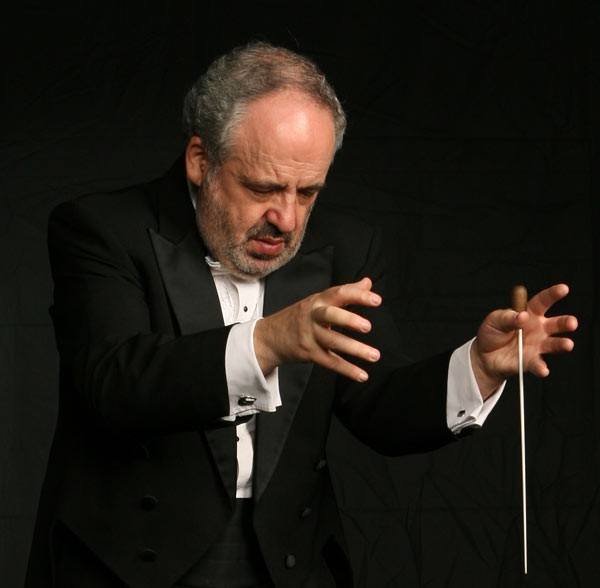Chamber Orchestra Kremlin displays brilliance and precision
Russia produces an endless profusion of fine string players and the fourteen members of Chamber Orchestra Kremlin are no exception. The Moscow-based string ensemble returned to South Florida for a Sunday afternoon musicale at UM’s Gusman Concert Hall, presented by Friends of Chamber Music. Formed in 1991 for a recording project, the group has become a full-time chamber orchestra, touring widely in Europe, North America and Asia as well as presenting a concert series in Moscow.
Under the direction of founder Misha Rachlevsky, the ensemble’s sleek corporate sonority and brilliance and precision of execution took center stage with Rossini’s Sonata No. 3 in C Major, the concert opener. The work of a prodigious 12-year-old, Rossini’s creative voice is unmistakable in this early score. The charming melodies and slightly quirky sensibility that would infuse his comic operas are already present. Rachlevsky led a spirited account, drawing particularly brilliant unison playing from his violins.
Rudolf Barshai’s arrangement of fifteen of Prokofiev’s Visions Fugitives demonstrated the players’ ability to turn on a dime from razor- sharp brilliance to dark toned angst.
Barshai’s arrangement of Shostakovich’s String Quartet No. 8, renamed “Chamber Symphony,” has become a repertoire staple and his Prokofiev transcriptions are no less skillful. All of the hallmarks of Prokofiev’s mature style are present in these miniatures, some lasting less than a minute. A macabre waltz with mock schmaltzy solo violin and a bleak march that calls for the musicians to play near their instruments’ bridge in eerie harmonics highlight this splendid orchestral realization of the more spare keyboard pieces.
Ariel Horowitz, an 18-year-old student of Itzhak Perlman at the Juilliard School, soloed in Saint-Saëns’ Introduction and Rondo Capriccioso. While the missing wind parts left the orchestral fabric incomplete, Horowitz exhibited secure technique and a rich sound. The young violinist blazed through the pyrotechnics. She is definitely a technically accomplished and very promising player.
Tchaikovsky’s Serenade for Strings has become a signature piece for Russian chamber orchestras but there was nothing routine about Rachlevsky’s reading. In an admirably restrained traversal of the opening movement, the silken violin sonority and disciplined ensemble allowed the individual instrumental lines to resound in unusually transparent manner. The softer dynamics in the reprise of the second movement’s principal waltz melody were but one of many refreshing details Rachlevsky brought forth, the familiar themes given a fresh spin.
Special clarity was given to the bass and cello underpinnings of the Elegie, Rachlevsky summoning depth of emotion and power in the climax. The final movement was played full force, with the score’s balletic aura strongly etched. Encores brought a rapid, virtuosic ride through Rimsky-Korsakov’s Flight of the Bumble Bee and an atypically slow and brooding Melodia in A minor by Astor Piazzolla.
The Friends of Chamber Music season concludes with a recital by tenor Anthony Kalil and pianist Ken Noda 4 p.m. April 19 at Temple Beth Am in Pinecrest. miamichambermusic.org; 305-372-2975.
Posted in Performances
One Response to “Chamber Orchestra Kremlin displays brilliance and precision”
Leave a Comment
Mon Mar 23, 2015
at 12:09 pm
1 Comment








Posted Mar 23, 2015 at 1:05 pm by Stephen Margulis
Chamber Orchestra Kremlin is an outstanding ensemble, both technically and artistically. It was amazing to hear such a full orchestral sound coming from only 14 string instruments. Maestro Rachlevsky draws beautiful musical portraits from these talented players. I hope to see them again.